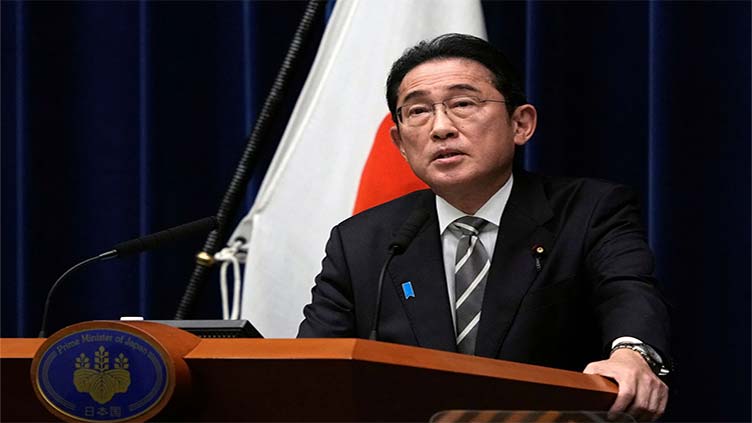Japan PM purges cabinet in bid to ride out financial scandal

World
Japan PM purges cabinet in bid to ride out financial scandal
TOKYO (Reuters) – Embattled Japanese premier Fumio Kishida dropped four cabinet ministers on Thursday, as he tried to limit the fallout from the biggest financial scandal his ruling party has faced in decades.
The ousted ministers included chief cabinet secretary Hirokazu Matsuno and industry minister Yasutoshi Nishimura in Kishida's third cabinet shake-up in 16 months, as he looks to shore up sliding public ratings.
"It's important to find out what happened, why it happened, and what the issues are that the LDP as a whole needs to tackle," Kishida told reporters on Thursday evening, referring to his ruling Liberal Democratic Party.
"I am determined to make every effort for the LDP ... to work together to win back the public's trust."
Former foreign minister Yoshimasa Hayashi replaced Matsuno while former justice minister Ken Saito took Nishimura's post in the key changes, with several deputy ministers also axed.
Kishida does not need to call an election until October 2025 and a fractured opposition has historically struggled to make sustained inroads into the dominance of the LDP.
But political analysts have questioned whether, faced with waning public support, he can survive until September, when a leadership vote for the ruling party is due.
The dropped ministers all hail from the LDP's most powerful faction that is at the centre of a criminal investigation into missing accounts.
But a poll on Thursday suggested that the clearout, which media have speculated about for days, was unlikely to halt the slide in public support for Kishida, who has been dogged by a series of scandals since coming to office in October 2021.
Just 17 percent of respondents in the Jiji poll said they backed his administration, the lowest for any premier in more than a decade.
Support for the LDP, which has ruled for nearly all of Japan's post-war history, is also at its lowest since 2012, recent polls show.
The latest incident has drawn comparisons to the so-called Recruit scandal of the late 1980s when accusations of insider trading forced the resignation of prime minister Noboru Takeshita and several top government officials.
'SIMILAR PROBLEMS'
The investigation centres on the LDP's Abe faction, named for assassinated premier Shinzo Abe, and is checking if dozens of lawmakers benefited from fundraising events that kept millions of dollars off official party records, media have said.
It will also examine if other LDP factions, including the one Kishida led until last week, are involved, the reports said.
Takashi Shinkawa, an official of the Tokyo prosecutors' office, told a press conference on Thursday that he was aware of the reports, but declined to say whether there was an inquiry.
Further ripples from the scandal are the resignation of a top LDP official who oversees budget proposals, while media say Kishida is considering shelving plans for a trip to Brazil and Chile next month.
"Kishida’s popularity has really taken a hit, so whatever he does he can’t do much to improve that," said Jun Iio, a specialist in Japanese politics at Tokyo's National Graduate Institute for Policy Studies.
"He’s replacing his ministers while the government is still compiling its budget. That could cause further disruption, and on top of that, there’s no knowing if there might be more ministers who actually have similar problems."
The political upheaval comes at a critical moment for the Bank of Japan, which is planning an exit from decades of ultra-low interest rates.
With the scandal looking set to sideline heavyweights of the ruling party's once-mighty faction favouring big monetary stimulus, that could make the BOJ's job easier.
"With the diminishing influence of the Abe faction, calls for ultra-loose monetary policy to support expansionary fiscal policy will likely disappear," said Shigeto Nagai, the head of Japan economics at Oxford Economics and a former BOJ official.


